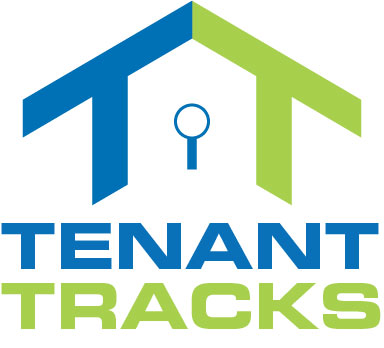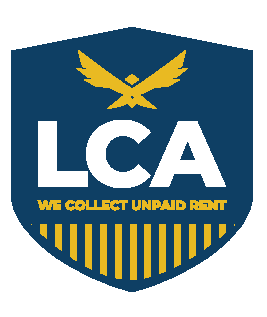As a landlord in Connecticut, navigating the intricate landscape of tenant rights and your corresponding legal obligations is not just a matter of best practice – it’s a fundamental requirement of operating a successful and legally compliant rental business. A thorough understanding of these rights is crucial for fostering positive tenant relationships, minimizing legal disputes, and ensuring the smooth operation of your properties. This comprehensive guide, tailored for members of the Connecticut Property Owners Alliance (CTPOA), delves into the key aspects of tenant rights in Connecticut that every landlord must know.
The Foundation: The Connecticut Landlord and Tenant Act
The cornerstone of tenant rights in Connecticut is the Connecticut General Statutes, specifically Chapter 830, the Landlord and Tenant Act. This comprehensive body of law outlines the responsibilities of both landlords and tenants, providing a framework for the rental relationship. Familiarity with this Act is the absolute minimum requirement for any landlord operating in the state. It covers a wide array of topics, including lease agreements, security deposits, eviction procedures, and the landlord’s duty to maintain a habitable premises.
The Lease Agreement: Setting the Stage for a Legally Sound Tenancy
The lease agreement is the contractual foundation of the landlord-tenant relationship. While it outlines the terms of the tenancy, it cannot supersede the rights granted to tenants under Connecticut law. Landlords must ensure their lease agreements are compliant with all state statutes. Key aspects to consider include:
- Clarity and Completeness: The lease should clearly define essential terms such as the names of the parties, the property address, the lease term, the rent amount and due date, late fee policies (which are regulated in Connecticut), and any specific rules or regulations for the property. Ambiguous or incomplete leases can lead to misunderstandings and potential legal challenges.
- Prohibited Clauses: Connecticut law prohibits certain clauses in lease agreements. For instance, a lease cannot waive a tenant’s right to a habitable dwelling or exempt the landlord from liability for negligence. Including such clauses renders them unenforceable and can even expose the landlord to legal repercussions.
- Disclosure Requirements: Landlords in Connecticut have specific disclosure obligations. This includes informing tenants about lead-based paint hazards in pre-1978 properties, providing a copy of the lease, and disclosing the name and address of the person authorized to receive notices and demands.
- Security Deposit Provisions: The lease must clearly outline the terms and conditions related to the security deposit, adhering to Connecticut’s strict regulations on the amount that can be charged (typically no more than two months’ rent, or one month’s rent for tenants over 62), how it will be held, and the procedures for its return, including allowable deductions and the timeframe for providing an itemized list of damages.
The Right to a Habitable Dwelling: A Landlord’s Fundamental Responsibility
One of the most fundamental tenant rights in Connecticut is the right to a safe, sanitary, and habitable dwelling. This implied warranty of habitability places a significant responsibility on landlords to maintain the property in good repair and fit for human habitation throughout the tenancy. This includes ensuring:
- Structural Integrity: Maintaining the roof, walls, floors, and foundations in sound condition.
- Essential Utilities: Providing working plumbing, heating, electricity, and hot and cold running water.
- Sanitation: Maintaining common areas in a clean and safe condition and ensuring proper waste disposal.
- Pest Control: Taking reasonable measures to control infestations of insects, rodents, and other pests.
- Compliance with Building Codes: Ensuring the property complies with applicable state and local building and housing codes.
Tenants have recourse if a landlord fails to uphold this duty. They may be able to withhold rent (after proper notification and opportunity for the landlord to cure the defect), seek a court order compelling repairs, or even terminate the lease under certain circumstances. Landlords must respond promptly and effectively to legitimate repair requests to avoid potential legal and financial consequences.
The Right to Privacy: Respecting the Tenant’s Sanctuary
Tenants in Connecticut have a right to the quiet enjoyment of their premises, which includes the right to privacy.Landlords generally cannot enter a tenant’s dwelling unit without a legitimate reason and proper notice. Permissible reasons for entry typically include:
- Emergency: To address an immediate threat to safety or property.
- Repairs: To make necessary repairs or maintenance.
- Inspections: To conduct reasonable inspections, as allowed by law or the lease agreement.
- Showing the Property: To prospective tenants, purchasers, or mortgagees (with reasonable notice).
Connecticut law generally requires landlords to provide reasonable advance notice (typically 24 hours) before entering a tenant’s unit for non-emergency reasons, unless the tenant consents to the entry. Unauthorized or frequent entries can be considered harassment and may give the tenant grounds for legal action.
The Right to Due Process in Eviction: Following Legal Procedures
Evicting a tenant is a serious matter and must be handled strictly according to Connecticut law. Landlords cannot resort to self-help eviction methods, such as changing the locks or forcibly removing a tenant without a court order. The legal eviction process in Connecticut involves several crucial steps:
- Proper Notice to Quit: The landlord must serve the tenant with a written Notice to Quit, specifying the reason for the eviction and the date by which the tenant must vacate the premises. The type and length of the notice period vary depending on the reason for eviction (e.g., non-payment of rent, lease violation, termination of lease).
- Summary Process Action: If the tenant fails to vacate after the notice period expires, the landlord must file a Summary Process (eviction) action in court.
- Service of Process: The tenant must be properly served with the court summons and complaint.
- Court Hearing: Both the landlord and tenant have the opportunity to present their case in court. The tenant has the right to raise defenses to the eviction action.
- Judgment and Execution: If the landlord prevails in court, the court will issue a judgment for possession. A marshal must then execute the judgment, which involves physically removing the tenant from the property if they still refuse to leave.
Failure to follow the proper legal procedures for eviction can result in the dismissal of the case and potential liability for the landlord.
Protection Against Discrimination: Ensuring Fair Housing Practices
Connecticut law, in alignment with federal fair housing laws, prohibits discrimination in housing based on protected characteristics. These include race, color, religion, national origin, sex (including sexual harassment), familial status, disability, and source of income. Landlords must ensure that all aspects of the rental process, from advertising and screening applicants to enforcing lease terms and handling evictions, are conducted in a non-discriminatory manner.Understanding and adhering to fair housing laws is not only a legal obligation but also essential for fostering inclusive and equitable communities.
Retaliation is Prohibited: Protecting Tenants Who Assert Their Rights
Connecticut law prohibits landlords from retaliating against tenants who exercise their legal rights. This includes actions such as raising the rent, attempting to evict, or reducing services because a tenant has:
- Reported a housing code violation to the authorities.
- Complained to the landlord about unsafe or unhealthy conditions.
- Joined or organized a tenant’s union.
- Pursued a legal remedy against the landlord.
If a landlord takes adverse action against a tenant shortly after the tenant has asserted their rights, it can be presumed to be retaliatory, and the landlord may have to prove that the action was taken for a legitimate, non-retaliatory reason.
Security Deposit Regulations: Handling Tenant Funds with Care
Connecticut has specific and strict regulations regarding security deposits. Landlords must:
- Limit the Amount: Not charge more than two months’ rent (or one month’s rent for tenants over 62).
- Separate Account: Hold the security deposit in an escrow account separate from the landlord’s personal funds.
- Provide Notice: Inform the tenant in writing of the bank and account number where the deposit is held.
- Pay Interest: Pay interest on security deposits held for more than one year (the rate is set annually by the Banking Commissioner).
- Return Promptly: Return the security deposit, or any remaining portion, within 21 days beginning when the tenant informed the landlord of where to mail it, along with an itemized list of any deductions for damages beyond normal wear and tear. Failure to comply with these regulations can result in significant penalties for the landlord, including double the amount of the security deposit plus interest and attorney’s fees.
Conclusion: Embracing Knowledge for Successful Landlording
Understanding tenant rights in Connecticut is not merely about avoiding legal trouble; it’s about fostering positive landlord-tenant relationships built on fairness, respect, and a clear understanding of legal obligations. By staying informed about the Connecticut Landlord and Tenant Act, adhering to fair housing laws, and respecting the rights of your tenants, you can create a stable and successful rental business while contributing to a more equitable housing environment in Connecticut. The CTPOA serves as a valuable resource for landlords seeking to navigate these complexities. Utilizing the resources and educational opportunities provided by the alliance will empower you to be a knowledgeable, responsible, and successful landlord in the state. Remember, proactive compliance and open communication are the keys to preventing disputes and building thriving tenancies.
Are you a Connecticut landlord looking to stay informed, protect your investments, and connect with fellow property owners? Navigating the complexities of tenant rights and landlord obligations in Connecticut can be challenging.
Don’t go it alone.
Join the Connecticut Property Owners Alliance (CTPOA) today for just $99 per year and gain access to invaluable resources, expert guidance, and a supportive community. As a member, you’ll receive:
- Up-to-date information on Connecticut landlord-tenant laws and legislative changes.
- Exclusive access to educational materials, webinars, and workshops.
- Networking opportunities with experienced landlords across the state.
- Resources and tools to help you manage your properties effectively and legally.
- A collective voice in advocating for the rights of property owners in Connecticut.
Invest in your success and peace of mind. For less than $10 a month, you can empower yourself with the knowledge and support you need to thrive in the Connecticut rental market.
Already a member? Thank you for your continued support!
Not yet a member? Don’t miss out on this valuable opportunity. Click here to join the CTPOA for just $99/year today!








